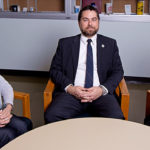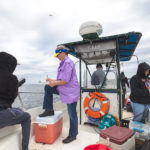Santa Rosa Mentoring Program a ‘Win-Win’
Milton – Three second-grade students sit around a table shaped like a semicircle. They read “Rumplestiltskin” aloud. Two whisper, and one uses a normal tone of voice.
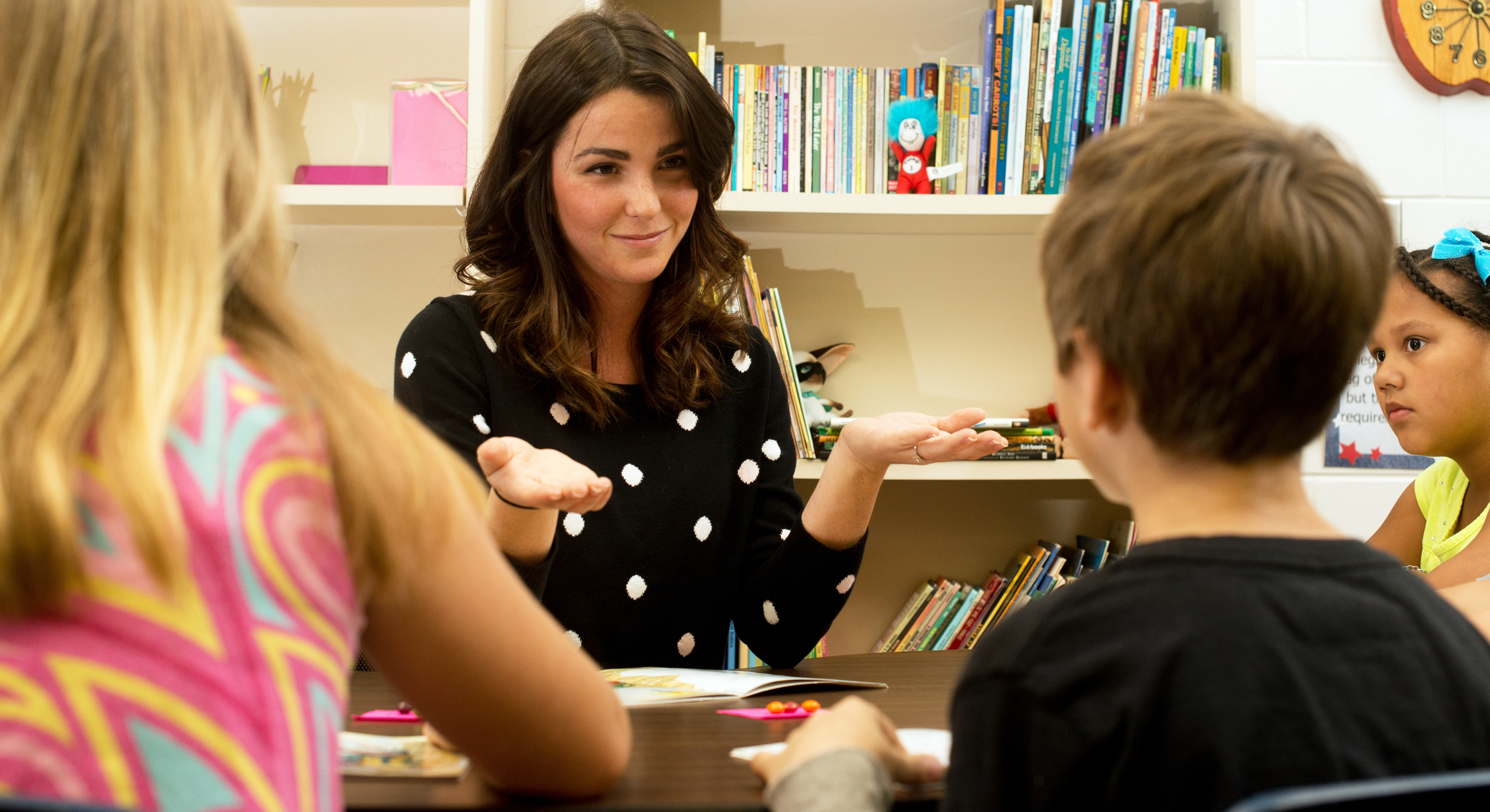
Their teacher, Katherine Folse, follows along, stopping to call attention to certain vocabulary words: muttered, sobbed and strode. They pause and discuss meanings before turning back to the story.
The group is at East Milton Elementary School. Folse, a senior majoring in education at the University of West Florida, is a mentor in the Santa Rosa Tutor/Mentor program, which is a partnership between the Institute for Innovative Community Learning at UWF and the Santa Rosa County School District.
UWF education students like Folse, who participate in the tutor/mentor program, get paid to do small-group instruction in support of classroom teachers. There are about 30 mentors in 14 schools in the Santa Rosa district.
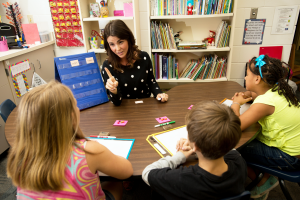 Folse, with the Santa Rosa Tutor Mentor Program, works with second graders Mariah Rugg, Christian Justice and Madison Freeman at East Milton Elementary School.
Folse, with the Santa Rosa Tutor Mentor Program, works with second graders Mariah Rugg, Christian Justice and Madison Freeman at East Milton Elementary School.
“This program grew out of a collaboration, and it meets the needs of the district as well as the needs of our students,” said Dr. Kathleen Heubach, director of the UWF institute.
The district needs personnel to help implement its early intervention learning program for reading in grades kindergarten though five, and UWF education students receive experience working and teaching in a classroom.
Folse calls the situation a win-win.
“Anyone who is an education major should consider doing the mentor program,” Folse said.
“You get to go into a variety of classrooms and see a variety of teaching styles. From lecture to the real-life of the classroom, the experiences really bridge to each other.”
To become a mentor, the student must go through a selection process in the education department of the College of Education and Professional Studies, according to Dr. Dana Boddy, program coordinator. They submit three references and maintain a 3.0 GPA. Students are eligible to mentor during their junior and senior years.
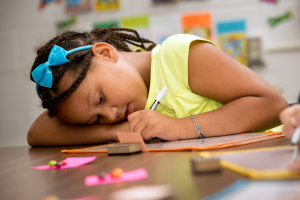 Second grader Madison Freeman works on homonyms during tutoring at East Milton Elementary School.
Second grader Madison Freeman works on homonyms during tutoring at East Milton Elementary School.
Barber said the program is in its seventh year and hundreds of UWF education students have participated in it.
“Our mentors are getting invaluable experience not only in learning skills for teaching reading but in learning about classroom management,” Heubach said.
Folse, who spends three hours Monday through Friday working in second- and third-grade classrooms at East Milton, agrees.
She said when it comes to classroom management, her experience with the small reading groups has revealed that consistency is key.
“Do not send mixed messages, and stick to what you say,” Folse said. “Let students know exactly what you expect of them.”


